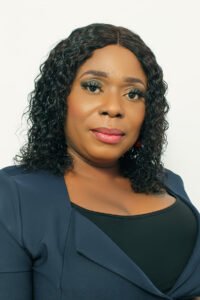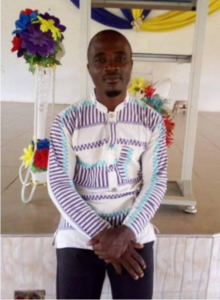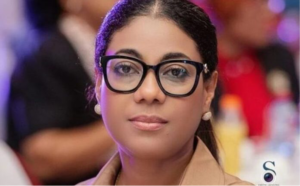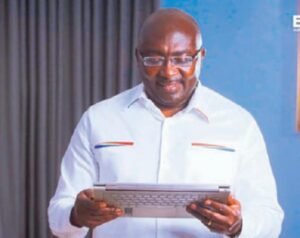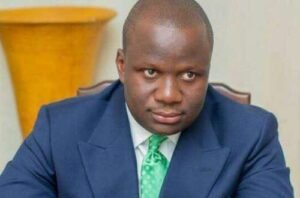
Martin A.B.K Amidu
The past decade has seen a very significant increase in peoples’ interest in corruption. This has led to a growing academic and policy consensus that corruption is high in developing countries, compared to the developed countries. The consequences of corruption are that it is very costly, serving as a deterrent to economic development. The growing policy activism that conditions international assistance on corruption outcome reflects a belief that given the right incentives the corruption practitioners in these countries can reduce corruption. Nobody can run away from the fact that anecdotal and survey evidence suggests; corruption is rampant in the developing world. Stated differently, corruption is more prevalent in developing countries, of which Ghana is a part.
Corruption has fierce impacts on economic and societal development. It is a canker which has permeated through entire portions of the Ghanaian economy. Furthermore, it is a complex social phenomenon and the motivations to engage in corrupt behaviour are multifaceted. In developing countries, two types of corruption are commonest and identified as political corruption and bureaucratic corruption. This commonly used distinction between political corruption and bureaucratic corruption is very helpful when ascertaining their impact on an economy and how to control them. Political corruption takes place at the highest levels of political authority. It involves politicians, government ministers and other nominated or appointed senior public officeholders. Political corruption is the abuse of office by those who decide on laws and regulations and the basic allocation of resources in a society. Political corruption may include tailoring laws and regulations to the advantage of private sector agents in exchange for bribes, granting large public contracts to specific firms or embezzling funds from the treasury. The term “grand corruption” is often used to describe such acts, reflecting the scale of corruption and the considerable sums of money involved. Bureaucratic corruption occurs during the implementation of public policies. It involves appointed bureaucrats and public administration staff at the central or local level. It entails corrupt acts among those who implement the rules designed or introduced by top officials. Corruption may include transactions between bureaucrats and with private agents (e.g. contracted service providers). Top civil servants may demand extra payment for the provision of services to governmental institutions; make speed money payments to expedite bureaucratic procedures; or pay bribes to allow actions that violate rules and regulations. Corruption also includes interactions within the public bureaucracy, such as the payment or taking of bribes or kickbacks to obtain posts or secure promotion, or the mutual exchange of favours. This type of corruption is often referred to as “petty corruption”, reflecting the small payments often involved, although in aggregate the sums may be large. Political corruption and bureaucratic corruption are related. There is evidence that corruption at the top of a bureaucracy trickles down corruption at the lower levels.
Corruption is a scourging impediment to Ghana’s development. Past governments determined to fight it but to no avail. However, Ghana’s current government, His Excellency Nana Akufo Addo showed a keen interest in fighting corruption, starting from the time he was in opposition. He concretized this interest in his swearing-in message to Ghanaians and enactment of the Office of the Special Prosecutor Act, 2017 (Act 959). This Act was passed into law in the Year 2017. The Office of the Special Prosecutor (OSP) is a “specialised agency to investigate specific cases of alleged or suspected corruption and corruption-related offences involving public officers and politically exposed persons in the performance of their functions as well as persons in the private sector involved in the commission of alleged or suspected corruption and corruption-related offences, prosecute these offences on the authority of the Auditor General and provide for related matters”.
To proof, the seriousness of Nana Akufo Addo in the fight against corruption, Ms Gloria Akuffo, the then-Attorney General, exercised her power of nomination and submitted Mr Amidu’s name to the President of Ghana. In fact, the nomination made by the then-Attorney General fulfilled the requirements of the law. The Appointments Committee of Ghana’s Parliament vetted and recommended Mr Amidu, to be approved as Ghana’s Special Prosecutor. Parliament unanimously approved his candidature. He was therefore sworn into office by President Akufo-Addo on the 23rd day of February 2018. Some few months after, Ms Jane Cynthia Naa Korshie Lamptey, the nominated Deputy Special Prosecutor, passed through a similar process and was also sworn into office at the end of May 2018. Mr Amidu’s appointment came as a surprise to Ghanaians because he is a member of the biggest opposition party in Ghana. From this background, we all saw the seriousness of the President to appoint a principled and an anti-corruption campaigner as the Special Prosecutor. Getting such a renowned citizen, we anticipated the independence, efficiency, and effectiveness of Mr Amidu, as a Special Prosecutor.
Ghanaians overwhelmingly reposed much trust in Mr Amidu when he single-handedly pursued Mr Alfred Agbesi Woyome in court over an alleged void contract, of which he received a judgement debt of Ghc51 million. The facts of the case are that; Mr Martin Amidu, who was a former Attorney- General and Minister of Justice, sued Mr Woyome on a void contract the government entered with Waterville Holdings, the latter’s company. The Supreme Court, on July 29, 2014, ordered Mr Woyome to refund GH¢51.2 million to the state on the grounds that he got the money out of unconstitutional and invalid contracts between the state and Waterville Holdings Limited in 2006 for the construction of stadia for CAN 2008. So, Mr Martin Amidu won this case for the Ghanaian people. This made him very popular in fighting corruption and was nicknamed “citizen vigilante”.
Exactly two years and above after Mr Amidu’s appointment as the Special Prosecutor, we have not seen any show. On the other hand, no show yet by Mr Martin Amidu. His fearfulness has deeply diminished, and Ghanaians are disappointed in him when it comes to the fight against corruption. Initially, the Special Prosecutor complained about the lack of a Legislative Instrument to guide his operations and the logistics to aid his work. In the last quarter of the Year 2018, Mr Amidu issued an epistle. Within it, he did a comparison of his situation to the ‘Whitaker Scenario’ in the United States. He used this scenario to explain how Matthew Whitaker, Trump’s appointed Attorney General, undermined Robert Muller, the Special Prosecutor of the United States. The latter was the person responsible for conducting a probe into the allegation that Russia meddled in the Year 2016 Elections of the United States. So, the opinion was that Matthew Whitaker’s intentional sabotage of Robert Muller could curtail the United States election probe. The inference from this scenario is that Mr. Martin Amidu painted a picture that perhaps Gloria Akuffo was intentionally frustrating him by denying him logistics to work with.
Ghanaians did not take Mr, Amidu’s assertion kindly. They intervened and exerted much pressure on the government to provide him with the needed resources, including proper office and budget allocation. In the 2019 Annual Budget, the Finance Minister allocated Ghc180 million for the OSP. Out of this allocation, Ghc88 million was earmarked for goods and services, Ghc58 million was allocated for capital expenditure including the acquisition of a purpose-built office facility, outfitting and procurement of special general-purpose vehicles, office furniture, computers, modern security and communication equipment, among others. To recruit staff for the OSP, over 200 personnel were approved to be enrolled in office and Ghc34 million was allocated as compensation for the staff. All these funds were provided to the OSP as part of the measures to fully operationalize Mr Amidu’s office.
However, several petitions on corruption have been forwarded to the Special Prosecutor but still, no show has been witnessed by Ghanaians. In early 2018, Mr Duncan Amoah, the CEO of Chamber of Petroleum Consumers (COPEC), petitioned the Special Prosecutor, on a case involving financial loss to the state caused by Mr Alfred Obeng, the former CEO of Bulk Oil Storage and Transportation (BOST). He was deposed of his post by the President, and this issue was discussed across all spheres of the country. Mr Martin Amidu acknowledged receipt of Mr Amoah’s petition and it ended there. Furthermore, some workers of Metro Mass Transport, led by Mr Fuseini Lawal Laah (the Head of Security of MMT) petitioned the Special Prosecutor to investigate Mr Bennet Aboagye (former Managing Director of the MMT) over procurement malpractices in the award of a contract for the purchase of about 300 new buses and electrical products. Another petition involved Anas and his team Tiger Eye PI. They also forwarded a petition on galamsey corruption (bribery) scandal to the Special Prosecutor. The petition requested Mr Amidu to investigate the alleged corruption case involving Mr Charles Bissue, a Presidential Staffer and Secretary to the Inter-Ministerial Committee on Illegal Mining. Charles Bissue resigned following Anas galamsey fraud. His resignation, which he termed as ‘stepping aside’ was to make way for further investigations into the allegations levelled against him but nothing has been heard of it since then. A number of Ghanaians have petitioned the office of the Special Prosecutor to investigate a report of alleged thievery of state resources by appointees of former President John Mahama, including Mr Kwadwo Twum-Boafo formerly of the Free Zones Board, Mr George Ben-Crentsil formerly of the Ghana Standards Authority, Mr Kingsley Kwame Awuah-Darko formerly of BOST, Sedina Tamakloe formerly of MASLOC, Kakra Essamuah formerly of BOST, among others. There is also tax evasion-scandal and abuse of public office for private gains, involving Honourable Mahama Ayariga. The case involved the importation into Ghana through alleged corrupt means and corruption-related activities of three used Toyota Land Cruiser V8 vehicles. There are also double salary allegations involving MPs and former Ministers. They are all in a stalemate. Finally, the corruption scandal involving Ms Frances Asiam, the CEO of Ghana Cylinder Manufacturing Company (GCMC) Ltd. is also in a stalemate. This scandal involved fraudulent contracts initiated, approved and implemented by the Frances Asiam without recourse to any higher authority. As the then Finance and Accounts Manager of GCMC, I personally wrote a petition to the Office of the President of the land to investigate her. Ghana’s President heeded to my request, commissioned a three-man committee to investigate the corruption scandal but failed to release the final report of the Committee. Not satisfied with the outcome of the President’s Committee of Enquiries, I went a step further and petitioned the Special Prosecutor. Mr Amidu started his investigations by inviting myself and Frances Asiam. We wrote our statements and submitted them to the officials of Mr. Amidu’s office. Frances Asiam was arrested and detained at a Police Station and the case ended there. The fact is that there are several of such petitions filed in the files of the Office of the Special Prosecutor awaiting prosecution and Ghanaians are actively watching, with our hands between our things.
As a people, an essential component of the rule of law is based on effective and fair justice systems to ensure that laws are respected, legal needs are met and appropriate sanctions are taken when they are violated. Effective justice systems protect the rights of all citizens against infringement of the law by others. The impact of well-functioning justice systems contributes to a rapid economic development of a nation. In a democratic economy, the Special Prosecutor and the justice system as a whole should be impartial and independent of all external pressures. This is key to ensure that complainants and the wider public have confidence that their cases will be decided fairly and in accordance with the law. A number of Ghanaian citizens rely on the justice systems to solve a wide range of legal disputes including corruption and stealing by public officials.
We should note that the legal framework of a country is very vital for economic, political and social development. An overarching principle concerning the role of prosecutors in the criminal justice system is the need for the institutions of law enforcement to be guided by a policy framework that would clearly define the powers and obligations of different institutions. In the struggle against discrimination, in the protection of the socially weak and in the distribution of opportunities in society, the law can make an important contribution to a just and equitable society. There is a high positive correlation between the perceived effectiveness and timeliness of the criminal adjudication system and the extent to which people do not resort to violence to redress disputes and grievances. This suggests that when criminal adjudication system are perceived as effective, people tend to use the enacted procedures rather than taking actions themselves to obtain justice.
To conclude, pervasive corruption remains an existential threat to the stability of our democracy. There is no nation in the world where corruption is not an issue whatsoever. Combating corruption rather calls for collaboration with the Ghanaian citizenry, providing information to the Special Prosecutor. It is worrying to see the Special Prosecutor not acting on petitions from concerned Ghanaians of clear-cut corruption cases. President Akufo-Addo’s proposal for a single purpose vehicle to deal with corruption, particularly as it relates to politically exposed persons, was appropriate in the circumstances, and the appointment of Mr. Amidu raised even more expectations amongst the citizenry of tackling corruption so vigorously. Two years and above down the line, since Mr. Martin Amidu was appointed as the first ever Special Prosecutor of Ghana, we are yet to see any progress from him, regarding the fight against corruption. The corruption menace hampering the development of the country is still rampant and no show yet by Ghana’s Special Prosecutor, in prosecuting corruption perpetrators. In a situation where His Excellency Nana Akufo Addo, President of the Republic of Ghana and Mr. Martin Amidu, fail in their desire of fighting corruption, who else can rescue us from this economic misfortune? As a matter of fact, Mr. Amidu has opted out so now who else? This is food for thought.

